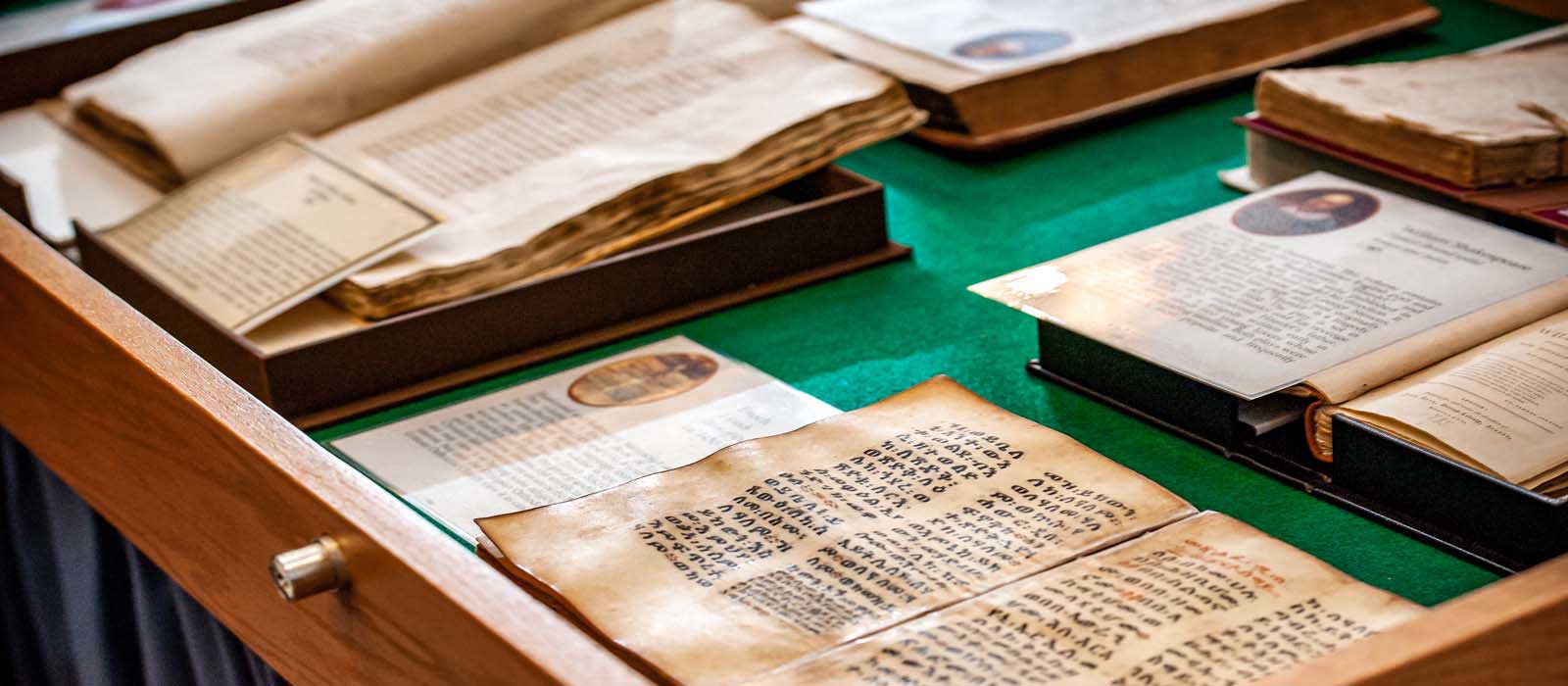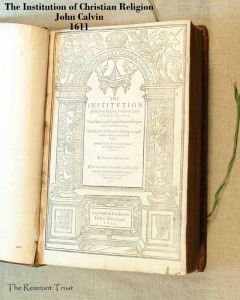The Institution of Christian Religion by John Calvin

“(Adapted from Jean Calvin, 1509-1564) French Protestant reformer. Calvin’s theological doctrines had tremendous influence, particularly in the Puritan religion of England, Scotland, and America.
Calvin had an early background of humanism; as a student of Latin and Greek, he was familiar with the writings of Plato, Seneca, and St. Augustine. Because of the radical Protestant views expressed in a public speech he wrote in 1533, to be delivered at an inaugural ceremony at the University of Paris, Calvin was forced to flee the capital and soon France as well. He established himself in Geneva, strictly enforcing his theological doctrines and rules of conduct. His greatest work is Institutes of the Christian Religion.
Calvinism as a religious system is the theological foundation of the Reformed, or Presbyterian, Churches, which is to say, of non-Lutheran, non-Anglican Protestantism. It recognized only the Bible as a source of knowledge and of authority in questions of belief. Its chief principles were (1) the total depravity of man, as a result of Adam’s fall; (2) the absolute power of the will of God; (3) the superiority of faith to good works, since man has no will of his own; (4) salvation by grace from God rather that by any act of the will of man; and (5) the divine predestination of those to be saved, or the Elect, although, since no one can tell whether he is a member of the Elect, all must lead holy and pious lives, acknowledging God’s supreme power and obeying his commands.
Calvin’s pessimistic interpretation of Christian doctrine was coupled with a repressive attitude toward pleasure and frivolity. The zeal with which his followers taught and imposed his views assured his position as one of the most influential theologians in the West.
The most influential theological work of the reformation. As a kind of handbook or companion to Calvin’s commentaries on the individual books of the Bible, it dealt with the most salient issues of religion under six headings: the law, the faith, prayer, the sacraments of baptism and communion, the sacraments added by the church, and Christian liberty and church discipline. The book was originally published in Latin, but Calvin translated it into French in 1541 and produced an augmented version in 1560.”
TITLE: The Institution of Christian Religion by John Calvin
Published: 1611
Catalogue: #0050





